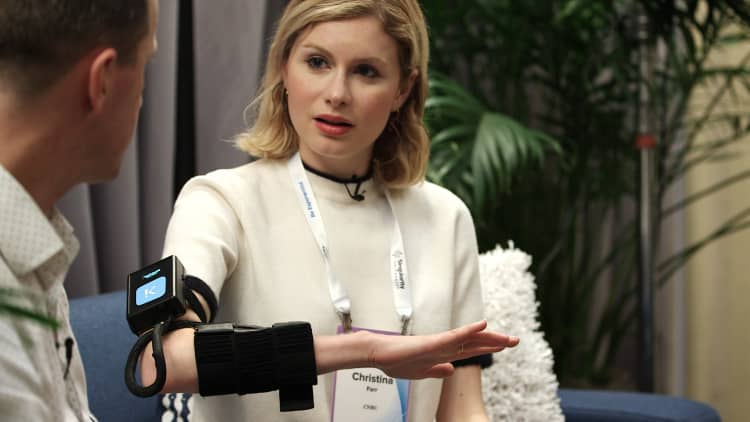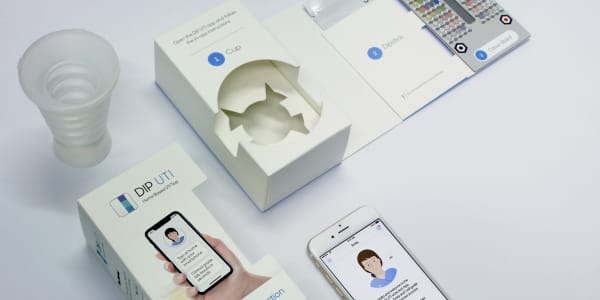Imagine giving teen smokers the feeling of having chronic obstructive pulmonary disease (COPD), a debilitating disease that results in trouble breathing and a persistent cough.
That might seem like the stuff of science fiction, "Black Mirror" even, but a group of engineers and designers in Toronto are building technology to give perfectly healthy people the feeling of having a disease.
The group, known as Klick Health, recently unveiled their first device to simulate the tremors that are commonly associated with Parkinson's Disease. I tried it out for myself at a medical conference earlier this week, and was deeply moved by the experience. My shaking hands prevented me from writing my own name or eating from a spoon.

Next up, the company is working on a similar device to simulate COPD.
Klick's intended goal is to build empathy between patients and their caregivers. But it's possible that technology like this will be used to dissuade people from unhealthy behaviors.
And it might be just drastic enough to work.
Changing behavior is a lot more challenging than giving people a Fitbit or an Apple Watch. Studies have found that technology that nudges users to take their medications on time or exercise more regularly isn't usually sustainable in the long-term.
Think about how many of these devices end up gathering dust in the back of a closet.
This new approach might work, but needs to be studied. "I do think that you can dissuade users via a virtual feeling," said John Brownstein, a Harvard professor and the chief innovation officer at Boston Children's Hospital.
Klick's devices might play a role, but Brownstein also sees potential for virtual and augmented reality. For instance, these technologies could be used to "age" people to show how they might look after several decades of smoking (makeup artists have tried that on young smokers, but it's unclear whether the results had an impact).
It might not work for everyone. The optimism bias, a well-documented cognitive effect that causes a person to believe that they are at a lesser risk of experiencing a negative event compared to other, might blunt its effectiveness. Moreover, studies have found that using fear as part of a punishment procedure is unlikely to succeed in promoting healthy behaviors.
Still, Brownstein believes it's worth a shot. "Direct experience of future symptoms could potentially change the course of someone's unhealthy habits," he said.





